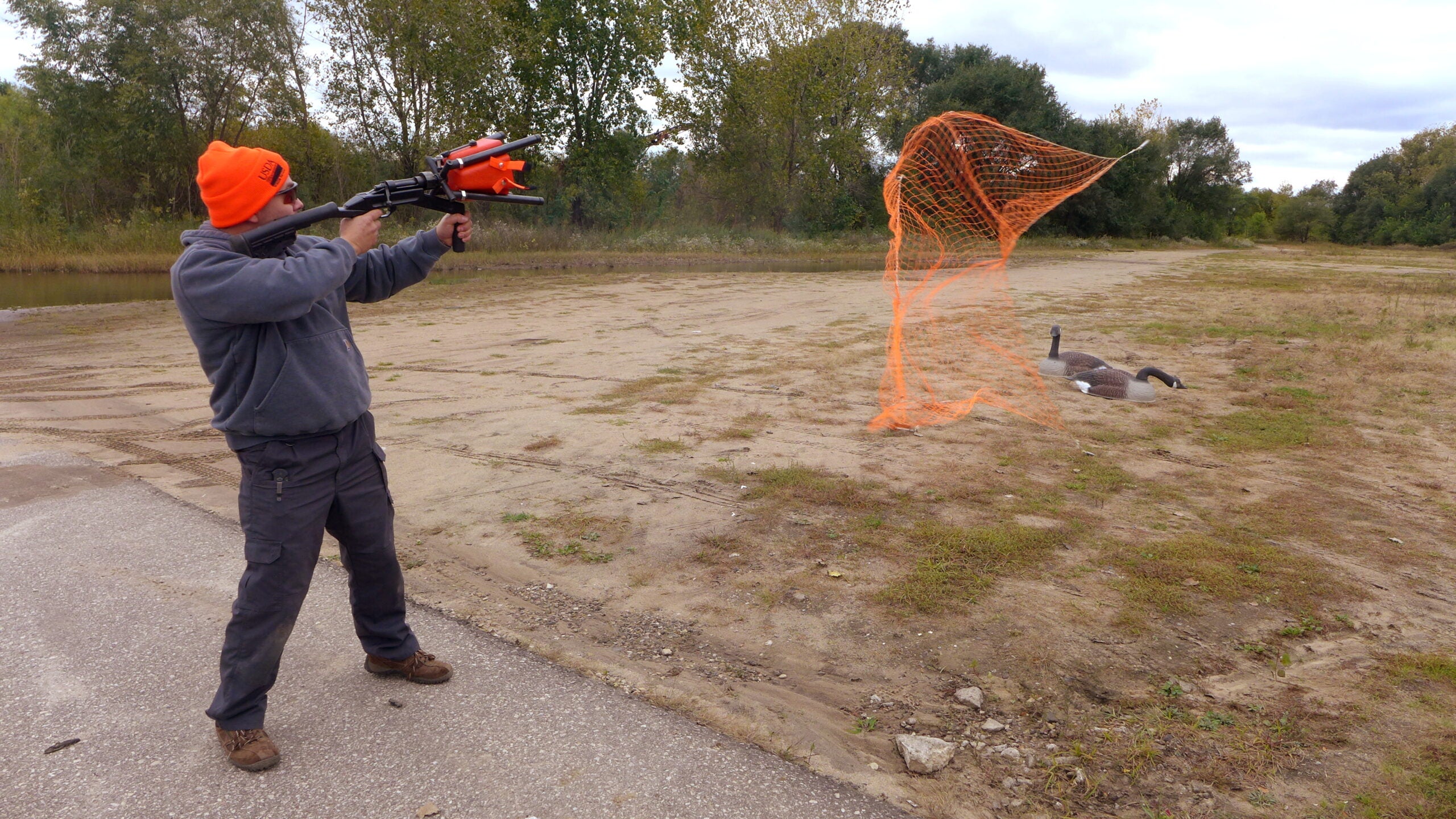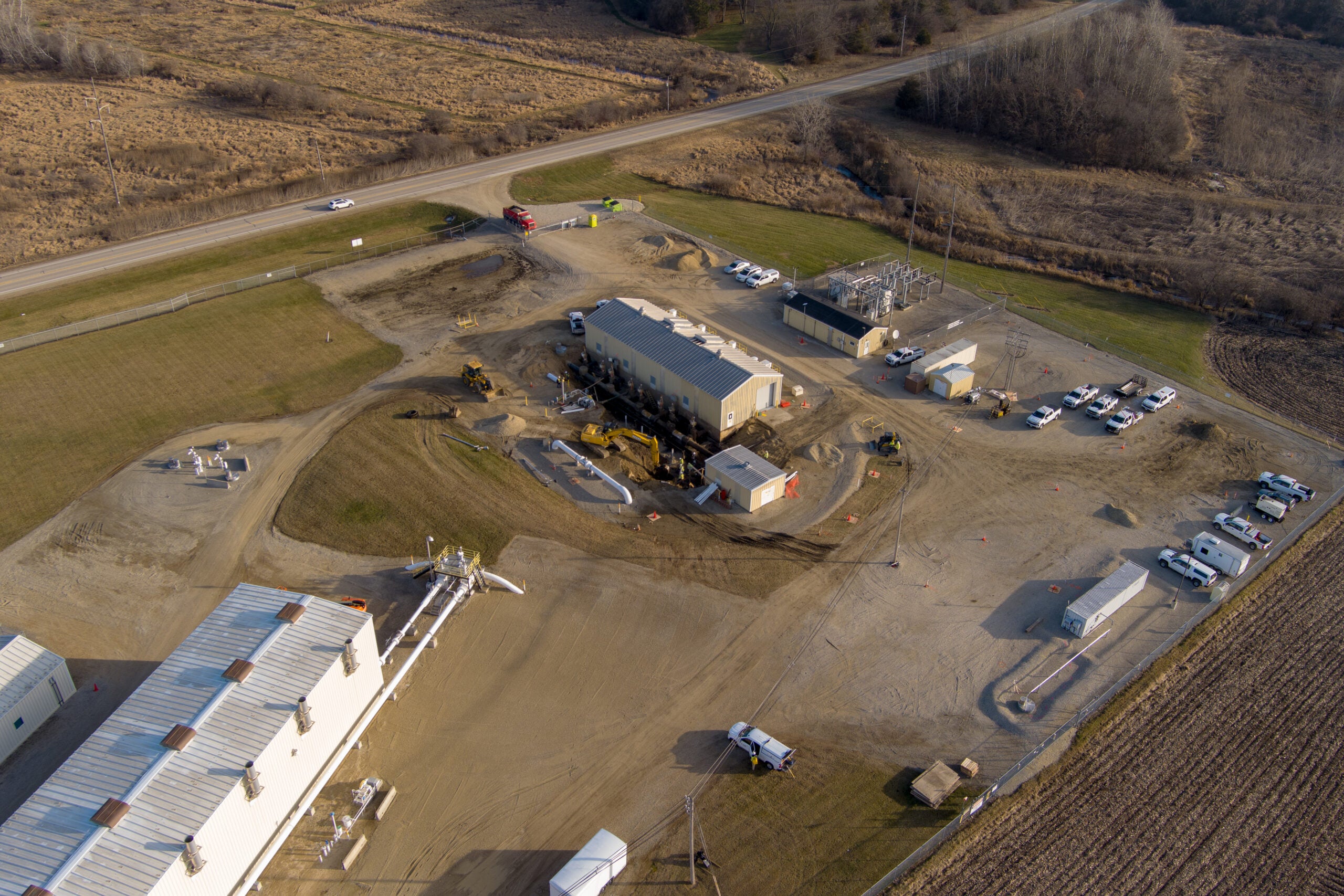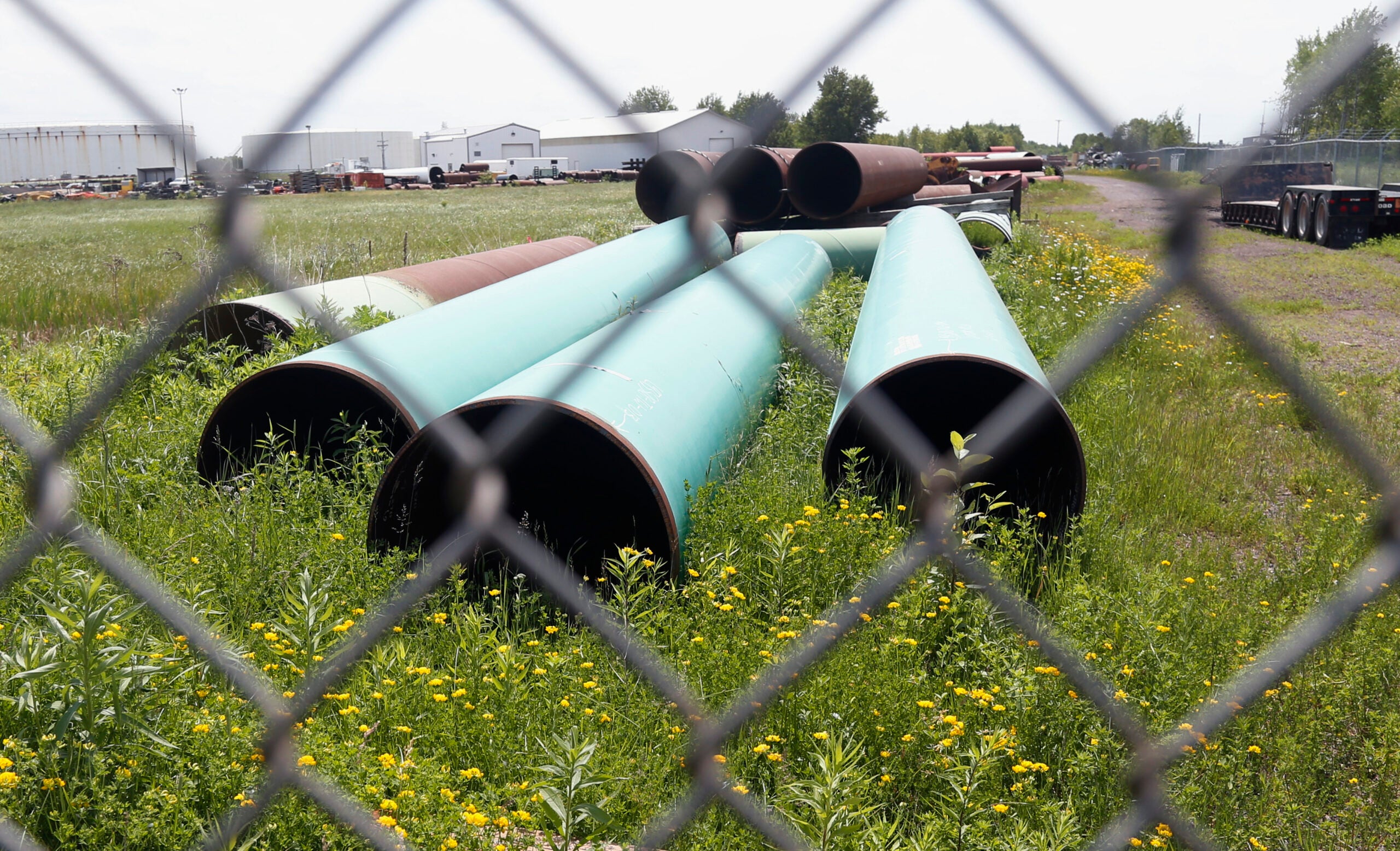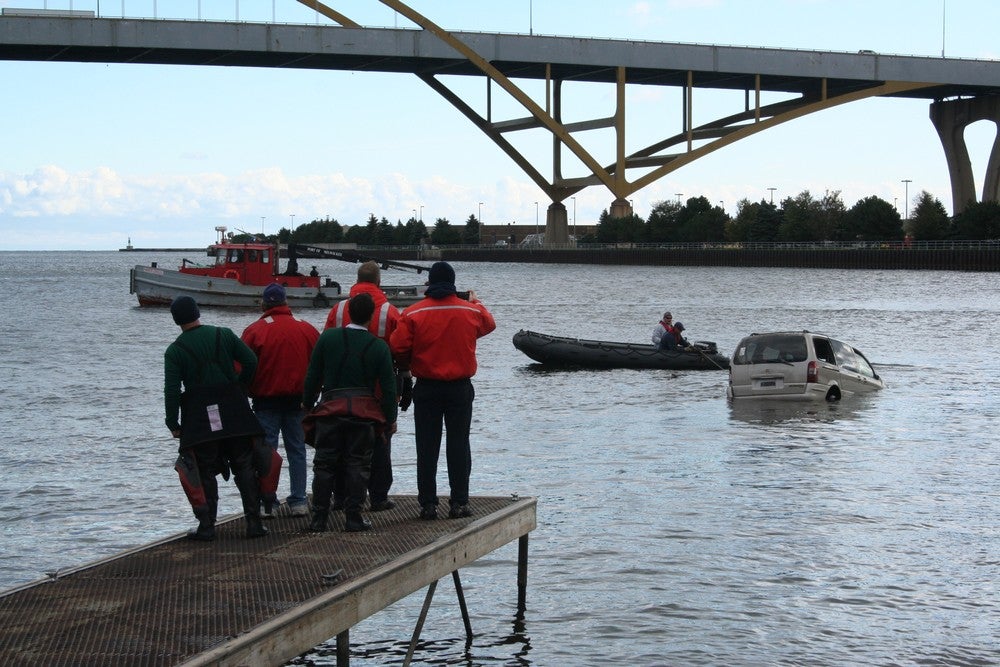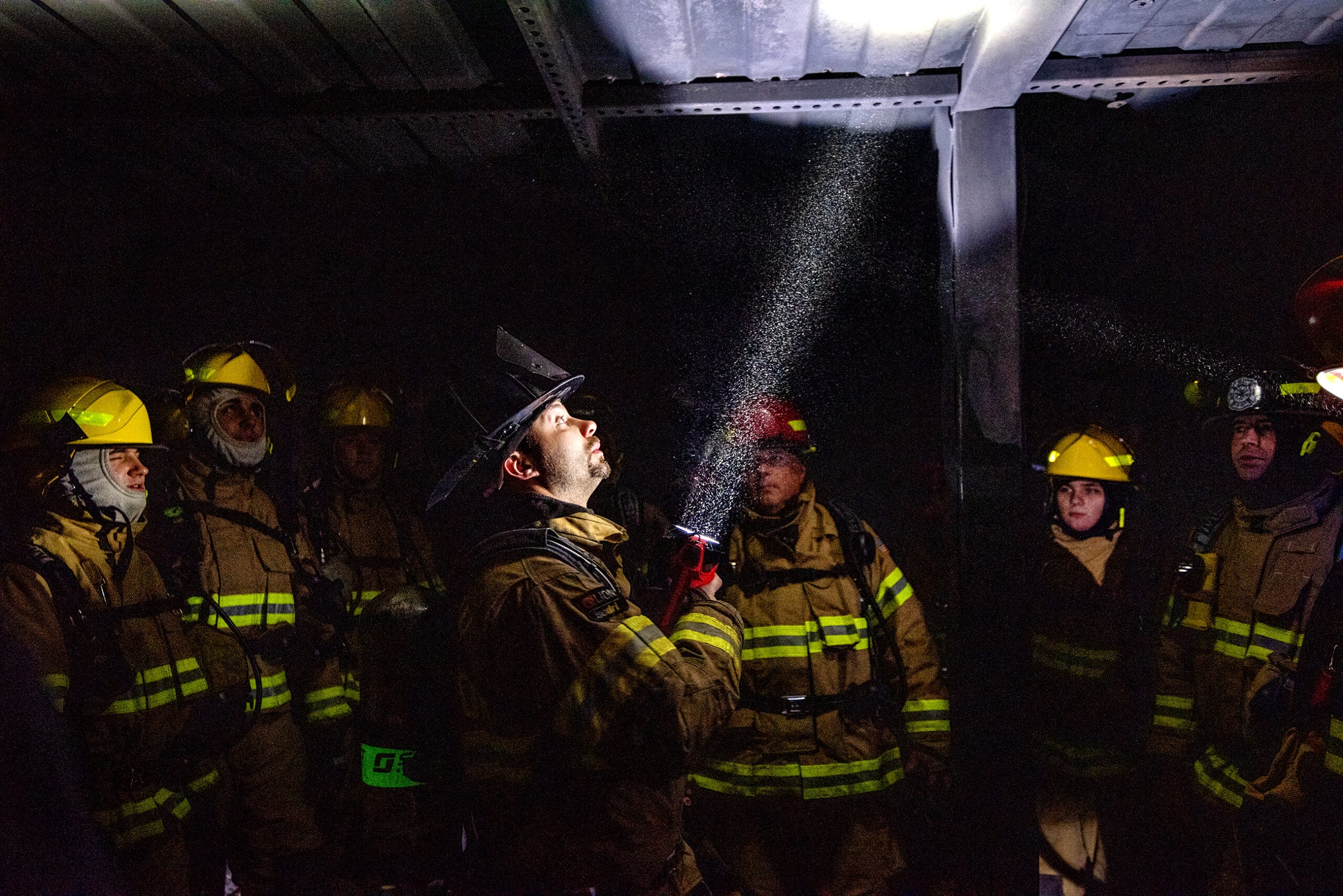Emergency responders from 25 local, state, and federal agencies simulated an oil spill on the Mississippi River on Friday as part of an exercise to prepare for potential rail accidents, as the number of trains carrying volatile crude oil through the region increases.
In the exercise scenario, a train derailed on the south side of La Crosse, spilling 150,000 gallons of Bakken oil. Hundreds of people live nearby, so emergency responders had to figure out what it would take to evacuate them. They also hypothetically rescued 2,000 canvasback ducks migrating through the region.
Paul Wolf, a wildlife biologist with the U.S. Department of Agriculture’s Wildlife Services Program in Minnesota, said a number of devices would be used to rescue wildlife, including a net gun.
Stay informed on the latest news
Sign up for WPR’s email newsletter.
“If we get in an area where the animals are just staying out of reach and we can’t get up close enough to them with a landing net, we use this. It’s operated just like a firearm,” he said.
During the exercise, emergency responders also deployed booms on the river to contain an imaginary oil spill.
La Crosse firefighter and hazardous materials team member Jeff Schott said local responders do not have the resources to respond to this type of accident alone.
“A spill this magnitude, we’d have to pool all the resources collectively from the three states. That would be private, all public entities, all the way up from Minneapolis all the way down to the Quad Cities.
Schott also said that a spill similar to the one simulated as part of the drill would be take a long time to clean up.
“You’d see this going well past 24-hour operational period. You’re talking months. La Crosse would be a busy place for a while, we’ll just say that,” he said.
BNSF owns the railroad that travels along the Mississippi River in Wisconsin. The rail company and others are working to get more emergency equipment to local responders.
Wisconsin Public Radio, © Copyright 2024, Board of Regents of the University of Wisconsin System and Wisconsin Educational Communications Board.

